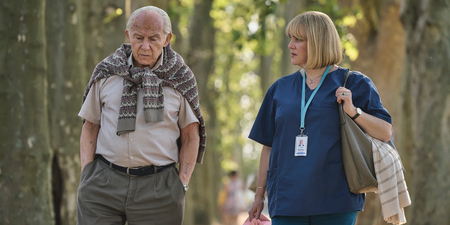The documentary features people involved in the tragedy and will be of interest to fans of the excellent TV series.
Fact will always hit harder than fiction, but when it comes to HBO’s recent miniseries Chernobyl, it’s testament to Craig Mazin that he respectfully and intelligently blurred the boundaries between both.
Even if he was taking artistic liberties with the truth, the writer/creator was always willing to explain his decision-making process in the excellent podcast series that accompanied the show.
Gripping, powerful, and incredibly respectful, the Chernobyl miniseries was really interested in portraying one truth about the horrific accident that occurred on 26 April, 1986.
Chernobyl was a scientific disaster, a human disaster, and a political disaster.
While it’s easy to assign blame and castigate people as villains, the show was mature enough to avoid cliches and pitfalls.
In doing so, those five episodes were more dramatic than five seasons.
After interest in the show skyrocketed, Mazin has shared some of the novels, documentaries, and TV shows that he drew inspiration from, but Sky have also done their best to educate anyone with an interest in the topic.
In a special documentary, crews travelled to Ukraine to meet some of the people involved in dealing with the Chernobyl nuclear disaster.
The synopsis for the documentary states: “What of those who lived through it? The men who worked at the plant, the firefighters, the divers, the pilots, the families evacuated from Pripyat, now a ghost town.”
In the feature, audiences hear two extremely powerful accounts from Nikolai Kaplin, an army officer involved in the clean up, and former Deputy Director of the Chernobyl Plant, Sergei Parashin.
At the time, Parashin was secretary of the Communist Party plant committee.
Here’s his take on the events that unfolded that horrendous night: “When you hear somebody telling you that the reactor exploded, you cannot believe it. The reactors never exploded before. An accident may have taken place, the fuel may have melted, water may have evaporated, but the reactors never exploded.
“Then we get the report that the reactor is gone. And we didn’t get this report at once, it was only some time later. So we were sitting here, making guesses what had happened. This took a lot of time.”
If you’re interested in watching the whole thing, it’s available below.
https://www.youtube.com/watch?v=Xw3SFOfbR84
Clip via Sky News


















































